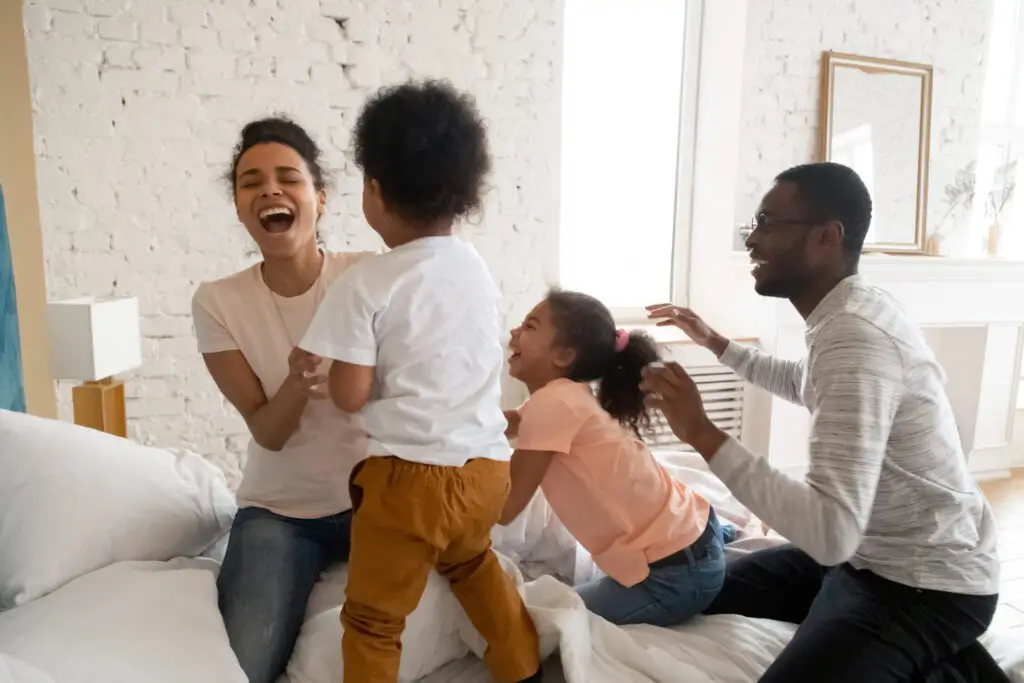Ted Lowe is one of my all-time favorite people. He is a great writer, communicator and thinker. I loved what he had to say about developing a closer relationship with our children. Wise counsel.
The Secret Ingredient for Having a Close Relationship with Your Kid
We’ve all been there: we look at our kid or teen and think things like:
I can’t believe you just acted like that!
I can’t believe you got so upset about something so small!
I can’t believe that was such a big deal to you!
Sometimes, we just don’t understand our kids no matter how hard we try. Maybe your kid has been frustrated with the same friend for years.
Maybe your teenager feels defeated by others’ Instagram profiles or TikTok followers. Maybe your kid gets super excited about Fantasy Football. Whatever it is, our kids’ emotions can leave us feeling confused, yet how we handle them has far-reaching implications.
So, what’s the secret?
Empathy.
Psychologist Dr. John Gottman defines empathy as, “The capacity to identify and share someone else’s emotions and experiences.” Empathy is like a radar—it picks up what is going on with our kids, and then steps into that emotion with them. Celebrating with our kid is one of the areas many of us are missing out on. I often see parents, myself included, responding to excitement with rolled eyes, disinterest, or outright contempt. Don’t be a killjoy. Smile when they smile. Laugh when they laugh. Be interested in what interests them.
Another dynamic of empathy, or being with our kids in their emotions, revolves around the tough stuff. When it comes to the tough emotions, I think my wife said it to me best when she said, “I don’t want you to fix it, I want you to feel it.” In the same way, oftentimes our kids don’t want us to fix what they’re going through, they want us to feel it with them.
You may be thinking, “But isn’t honest, helpful advice essential?” Yes, but there is a time and place for it. And if your kid is emotional, that is not the time or place for advice. If we get the timing wrong, we can end up making relational withdrawals, keeping our kid from even hearing our advice, even if it’s good. Because advice can be both good and helpful and still cause harm if the timing is off. In fact, when your kid is emotional, they are being driven by the emotional part of their brain. The logical part of their brain has greatly decreased in activity. So, no matter how logical your advice, it won’t matter because it will be received emotionally. That’s not necessarily a bad thing. In my experience, I have found most of us give way too much weight to the power of our advice, and way too little to the power of empathy. So, choosing to be with them in their emotions isn’t doing nothing. Instead, it’s doing something really powerful. It’s being empathetic, and empathy is a relational connector.
That’s why I want to give you just two words to remember: Choose empathy.
When your kid has a moment of excitement, say to yourself, “Choose empathy.” When they get frustrated, angry, or sad, say to yourself, “Choose empathy.” When they are displaying an emotion for a reason you can’t understand at all, choose empathy. The next time your kid is expressing frustration, feeling overwhelmed, or articulating a problem—even if you think you have the best solution in the world to fix it, save it for a better time and choose empathy in that moment instead.
Our kid needs to be seen figuratively and literally. Studies show simple eye contact produces empathy in you. That means, when you make eye contact with your kid, it tends to create more empathy in you for them. You can also mirror their emotions. Mirroring (not mocking) their emotions means matching the look on their face with yours. When you mirror their emotions and maintain eye contact, it brings the logical part of their brain back online. It helps them to feel less distress. When we see our kid is in emotional distress, we want them to think more logically. But your logic doesn’t make them more logical, empathy does.
Often, your kid will feel you understand them by your non-judgmental, sincere, patient presence and nothing more is required. But, depending on how your kid is wired, they may need you to verbally acknowledge you understand the topic and the emotion. For instance, you can say some things like:
“You were frustrated at baseball practice today because of the lack of teamwork. That’s understandable.”
“You feel your teacher misunderstood you in class and that made you feel embarrassed.”
“You are discouraged with how you are doing in school despite all the time you spent on homework.”
You don’t need to be a psychologist or a counselor. You just need to be a student of your kid. Practice presence with them and watch your relationship begin to change. Empathy is the start of hope and the protector of close connections.
This article first appeared here.



